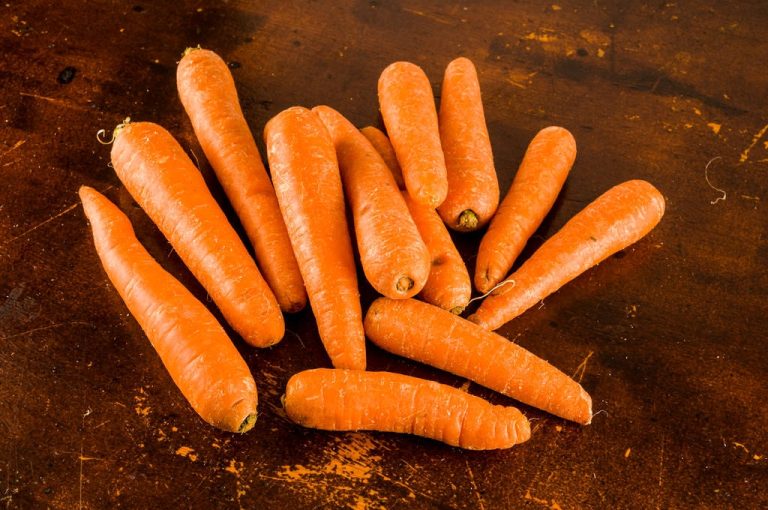Carotene tablets are supposed to protect our skin and, as “beauty capsules”, ensure “beauty from within”. But is it really necessary to supplement carotene or can we also meet our needs naturally?
What are carotenes?
Carotenes are secondary plant substances and belong to the group of carotenoids. They are the reason for the red, yellow or orange coloring of various types of fruit and vegetables. Synthetically produced, they are therefore also often used as food coloring. The name comes from the Latin word “carota”, which means “carrot” and thus alludes to the best-known carotene supplier.
There are over 600 carotene variants, of which around 60 can be converted into vitamin A by the human organism. The so-called beta-carotene has the highest vitamin A activity and is therefore the best-known and most important representative of the carotenes. Since it is an important precursor of vitamin A, it is also referred to as provitamin A.
Why do we need carotene?
The most important function of carotenes is their cell-protecting (antioxidative) effect: carotenes eliminate free oxygen radicals in the tissue and thus protect us from harmful environmental influences such as infections and UV rays. Carotene is also instrumental in strengthening our immune system.
If carotenes are converted by metabolism, they fulfill other important functions as vitamin A. The importance for our eyesight is well known. Surely everyone has heard the saying “Have you ever seen a rabbit with glasses?” However, what many do not know is that without vitamin A we would not be able to see anything at all. The gaze impulses that hit our eyes first have to be forwarded to the brain, where they are processed into correct images. This forwarding would not even take place without vitamin A. A vitamin A deficiency can therefore actually lead to visual disturbances, such as night blindness or reduced visual acuity, as well as very dry eyes.
Another well-known function of vitamin A is its importance for our skin. Dry, irritated or very sensitive skin can be a sign of vitamin A deficiency, as this plays a key role in the structure of the skin. Vitamin A is also important for the stability of our bones and the functionality of our mucous membranes.

Which foods contain carotene?
In the dietary supplement market, carotene tablets are advertised as “sun protection from within”, “help to activate a tan” or “cure against dry skin”. However, if you integrate different types of fruit and vegetables into your diet every day, you will be able to cover your need for carotene without tablets and pellets. According to the German Society for Nutrition, the recommended daily intake of carotene is two to four milligrams.
As a rule of thumb, all red, yellow, or orange fruits and vegetables are high in carotene. These include e.g.:
carrots
sweet potatoes
pumpkin
paprika
tomatoes
apricots
mangoes
nectarines
peaches
sea buckthorn
persimmons
But many green vegetables also provide your body with carotene. The color of the carotene is overlaid by the green of the high chlorophyll content. Kale has the highest carotene content of all foods: just 25 to 40 grams cover your daily requirement. Spinach, rocket, savoy cabbage or lamb’s lettuce are also examples of vegetables containing carotene.
So that your body can use the carotene accordingly, you should always eat the vegetables and fruits mentioned with some (high-quality) fat. For example, you can sauté vegetables in some oil or butter, add olive or linseed oil to your salad, or sprinkle some nuts and seeds over your fruit salad. In order to make it even easier for your body to digest it, you should also chew the food long enough or enjoy it pureed or as juice.

